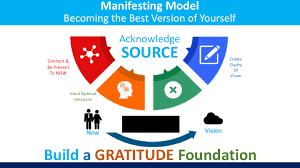The Struggle with Chronic Indecisiveness
Chronic indecisiveness is a common issue that many people face on a daily basis. It can be incredibly frustrating and overwhelming to constantly struggle with making decisions, big or small. Individuals who experience chronic indecisiveness often find themselves stuck in a cycle of overthinking, second-guessing, and feeling paralyzed by the fear of making the wrong choice.
One of the main challenges of chronic indecisiveness is that it can impact various aspects of a person’s life, including their relationships, career, and overall well-being. The constant stress and anxiety associated with being unable to make decisions can take a toll on one’s mental health and lead to feelings of self-doubt and inadequacy.
People who struggle with chronic indecisiveness may also find themselves seeking reassurance from others or avoiding making decisions altogether in order to escape the discomfort that comes with uncertainty. This avoidance behavior can further perpetuate the cycle of indecision and make it even harder to break free from its grip.
Fortunately, there are strategies that individuals can use to help manage chronic indecisiveness. One approach is to practice mindfulness and self-awareness, which can help individuals tune into their thoughts and feelings without judgment. By becoming more aware of their decision-making process, individuals can start to identify patterns or triggers that contribute to their indecisiveness.
Another helpful strategy is to set clear goals and priorities when faced with a decision. Breaking down choices into smaller steps or outlining the potential outcomes can make the decision-making process feel more manageable and less overwhelming.
Seeking support from a therapist or counselor can also be beneficial for individuals struggling with chronic indecisiveness. A mental health professional can provide guidance, tools, and techniques to help individuals build confidence in their decision-making abilities and work through any underlying issues contributing to their indecisiveness.
In conclusion, chronic indecisiveness is a challenging issue that many people face, but it is not insurmountable. With self-awareness, practice, and support, individuals can learn to navigate decision-making more effectively and regain control over their lives.
Understanding Chronic Indecisiveness: Causes, Symptoms, and Solutions
- What is chronic indecisiveness?
- What are the causes of chronic indecisiveness?
- How does chronic indecisiveness impact daily life?
- What are the signs and symptoms of chronic indecisiveness?
- Can chronic indecisiveness be a sign of an underlying mental health condition?
- What strategies can help manage chronic indecisiveness?
- When should someone seek professional help for chronic indecisiveness?
What is chronic indecisiveness?
Chronic indecisiveness is a persistent struggle characterized by difficulty in making choices or decisions, often leading to feelings of uncertainty, anxiety, and hesitation. Individuals experiencing chronic indecisiveness may find themselves stuck in a cycle of overthinking, second-guessing, and indecision, which can impact various aspects of their lives. This ongoing challenge can result in avoidance behavior, seeking reassurance from others, and feelings of inadequacy. Seeking support and utilizing strategies such as mindfulness, goal-setting, and professional guidance can help individuals better understand and manage chronic indecisiveness to improve their decision-making abilities and overall well-being.
What are the causes of chronic indecisiveness?
Chronic indecisiveness can stem from a variety of factors, including fear of failure, perfectionism, lack of self-confidence, and past negative experiences. Some individuals may struggle with decision-making due to underlying anxiety or uncertainty about the future, while others may have difficulty prioritizing their values and goals. Additionally, external pressures from society or relationships can also contribute to chronic indecisiveness by creating additional stress and expectations. Understanding the root causes of chronic indecisiveness is crucial in order to address and overcome this challenging issue effectively.
How does chronic indecisiveness impact daily life?
Chronic indecisiveness can have a significant impact on daily life, affecting various aspects such as relationships, work performance, and overall well-being. Individuals grappling with chronic indecisiveness may find themselves feeling overwhelmed and stressed when faced with even simple decisions. This constant struggle can lead to delays in completing tasks, missed opportunities, and strained relationships due to difficulty in making choices. Moreover, the mental fatigue and self-doubt that accompany chronic indecisiveness can hinder productivity and confidence, ultimately affecting one’s quality of life and sense of fulfillment. Addressing chronic indecisiveness is crucial for individuals to regain control over their daily routines and achieve a greater sense of clarity and purpose in their lives.
What are the signs and symptoms of chronic indecisiveness?
Chronic indecisiveness can manifest in various signs and symptoms that may impact an individual’s daily life. Some common indicators of chronic indecisiveness include persistent feelings of uncertainty, difficulty making even simple decisions, excessive worry or anxiety about making the wrong choice, seeking reassurance from others before deciding, procrastinating on decision-making tasks, and feeling overwhelmed by the decision-making process. Individuals experiencing chronic indecisiveness may also exhibit symptoms such as physical tension, sleep disturbances, and a sense of being stuck in a cycle of indecision. Recognizing these signs and symptoms is important in addressing and managing chronic indecisiveness effectively.
Can chronic indecisiveness be a sign of an underlying mental health condition?
Chronic indecisiveness can indeed be a sign of an underlying mental health condition. In some cases, persistent difficulty in making decisions may be linked to conditions such as anxiety disorders, obsessive-compulsive disorder (OCD), depression, or attention-deficit/hyperactivity disorder (ADHD). These mental health conditions can impact cognitive processes, emotional regulation, and decision-making abilities, leading to chronic indecisiveness as a symptom. It is important for individuals experiencing ongoing struggles with decision-making to consider seeking professional help from a mental health provider for proper evaluation and appropriate support.
What strategies can help manage chronic indecisiveness?
When it comes to managing chronic indecisiveness, there are several effective strategies that individuals can implement to navigate decision-making more confidently. One key approach is practicing mindfulness and self-awareness, which can help individuals identify patterns or triggers that contribute to their indecisiveness. Setting clear goals and priorities, breaking down choices into smaller steps, and outlining potential outcomes can also make the decision-making process feel more manageable and less overwhelming. Seeking support from a therapist or counselor is another valuable strategy, as they can provide guidance, tools, and techniques to help individuals build confidence in their decision-making abilities and address underlying issues contributing to their indecisiveness. By incorporating these strategies into their daily lives, individuals can take proactive steps towards managing chronic indecisiveness effectively.
When should someone seek professional help for chronic indecisiveness?
When should someone seek professional help for chronic indecisiveness? If chronic indecisiveness significantly impacts one’s daily life, relationships, work performance, or mental well-being, it may be time to consider seeking professional help. Persistent difficulty in making decisions, feelings of overwhelming anxiety or stress related to decision-making, and a sense of being stuck in a cycle of indecision despite efforts to break free are all signs that professional guidance may be beneficial. A mental health professional can provide valuable support, tools, and strategies to help individuals better understand and manage their chronic indecisiveness, leading to improved decision-making skills and overall quality of life.




